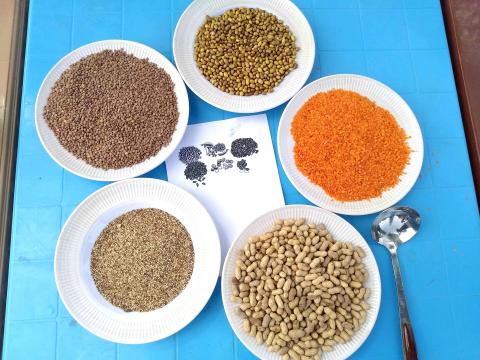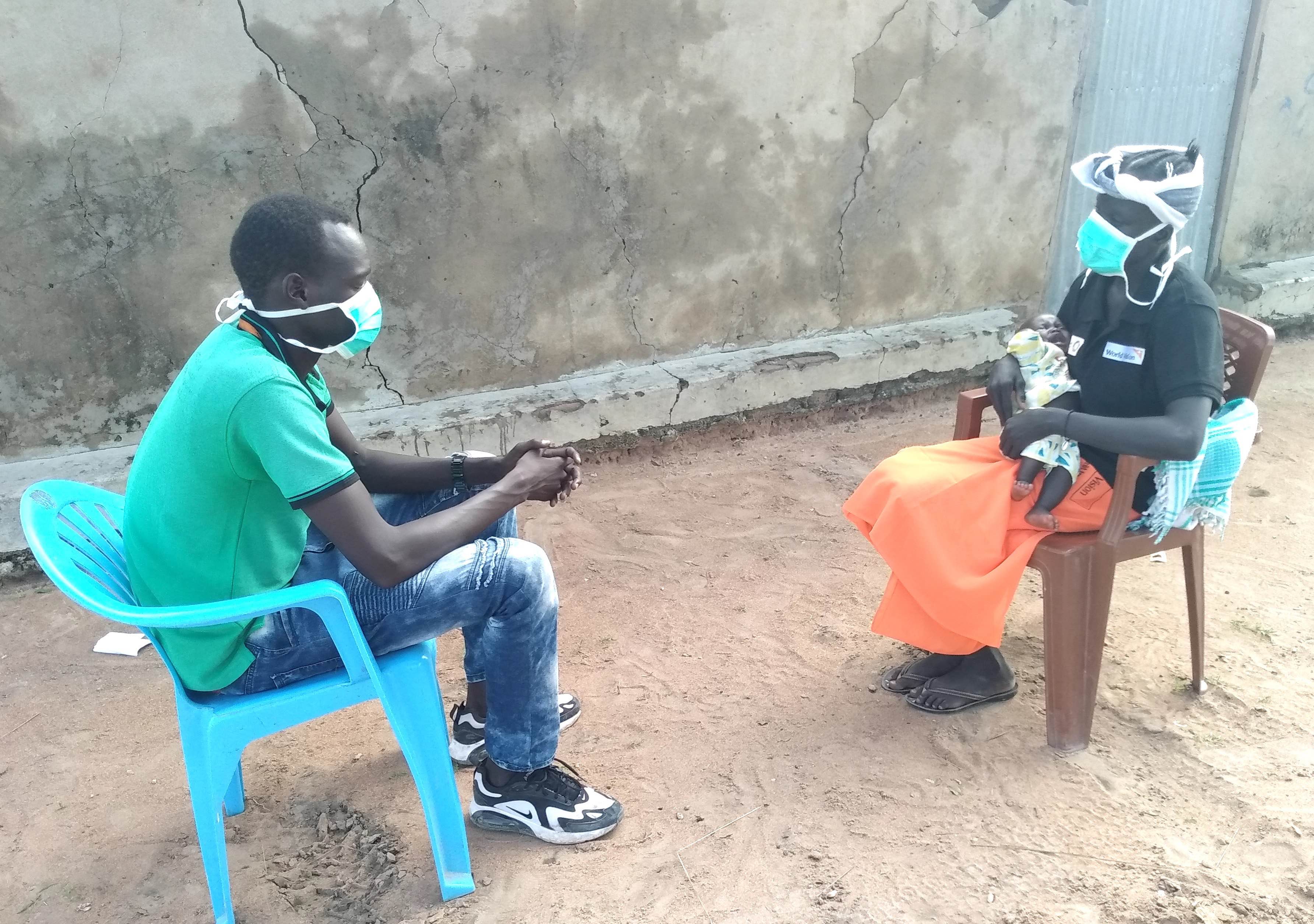Community cooking sessions: A practical way to combat malnutrition and COVID-19 in South Sudan

“We have different kinds of meat and vegetables but we did not know how to cook well for a balanced diet. Now I learned that I can combine posho or sorghum, chicken and lentils to whip a nutritious meal for my family”, says 24-years old Arek Deng. World Vision, supported by the World Food Programme (WFP), organized mothers into support groups cooking together and doing activities to help prevent malnutrition in Gogrial East County, a part of Warrap State in South Sudan.
Through the program, they were taught nutrition skills and provided with tools and information to share with communities. Each group selects a lead mother who is trained by World Vision to be able to teach 10-15 members and their families. The members are also expected to spread the information to the people around her.

With the onset of COVID-19, the activities included educating the mothers about the pandemic and how they can keep their families safe. Handwashing facilities were provided and social distancing was observed as mothers were encouraged to make sure they share the reminders with their neighbors and family members.
Arek Deng, 24-years old and mother of 17-months old baby, is one of the lead mothers who first came to the facility encouraged by a community nutrition volunteer after her child was found malnourished. At the facility, she was given CSB++, and her child recovered in less than a month.
Video: Women on the frontline of boosting food security in South Sudan

“My son recovered when I fed him the porridge. The mothers at the health center taught me how to grow vegetables in the demonstration garden. We met regularly within the community. I admired them and learned a lot about good feeding practices. Their children are healthy”, Arek says.
Food demonstrations are a good avenue to provide information on food production, skills on cookery and storage, good hygiene practices, how men can be involved in maternal and childcare among other practices.
Dominic Wol, World Vision’s Nutrition Field Coordinator said the vegetable garden and cooking demonstration has not only changed the way mothers prepare food in their homes but helped gradually reduce malnutrition cases. He says, “Unlike in the past, the children recover fast from malnutrition these days.”
When her child was discharged, Arek became active in the group. She says, “After three months, the mothers selected me as their leader. We meet twice every week and we work hard to share the information with other 15 houses around our neighborhood.”
Video: Cooking nutritious food for South Sudan's children

“Our goal is to get the men to be active in supporting the mothers”, says Nutrition Assistant Makat Nyony Akech, adding, “Men think that helping their wives at home is a sign of weakness. To change this mindset, we organized 12 men’s groups to help push for behavior change among men in Gogrial East County.”
Arek adds, “Through working with male change agents in the communities, some perceptions on women is gradually changing.. Even my husband now helps me with the chores, takes care of the child, and helps me when I am busy.”
“The elders in our community used to shun medical services saying they are dangerous. They never used them in old times but these days, some of them already are visiting the facility”, she shares.
Video: New hopes for South Sudan's fishing industry

“As a cross-cutting issue, the nutrition program also helped improve hygiene and sanitation, livelihoods, education, health, and social protection by focusing on the people’s immediate needs and promote resilience”, says Maria Namutebi, Nutrition Project Manager in Warrap State.
Namutebi further adds, “Food demonstrations are a good avenue to provide information on food production, skills on cookery and storage, good hygiene practices, how men can be involved in maternal and childcare among other practices. This trickles down to other people through the cascade methodology of the mother support groups.”
As mothers move around their communities, Wol said they were oriented on COVID-19 prevention measures and provided with personal protective equipment when they interact with people.

Story by Dominic Wol Wol, Nutrition Field Coordinator and Scovia Faida Charles Duku, Communications Officer I Photos by Dominic Wol Wol